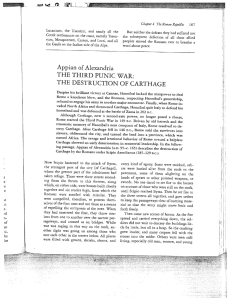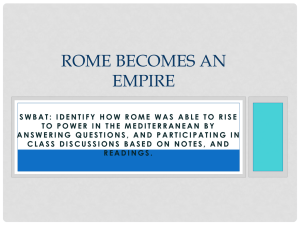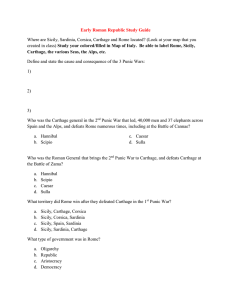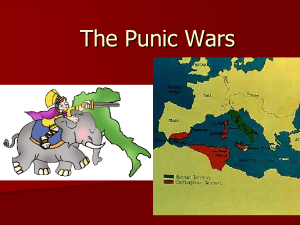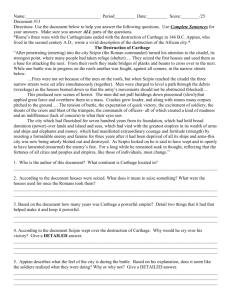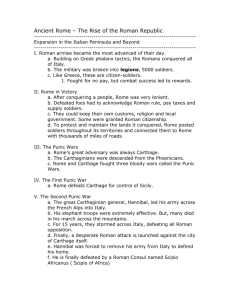Third Punic War: 149
advertisement
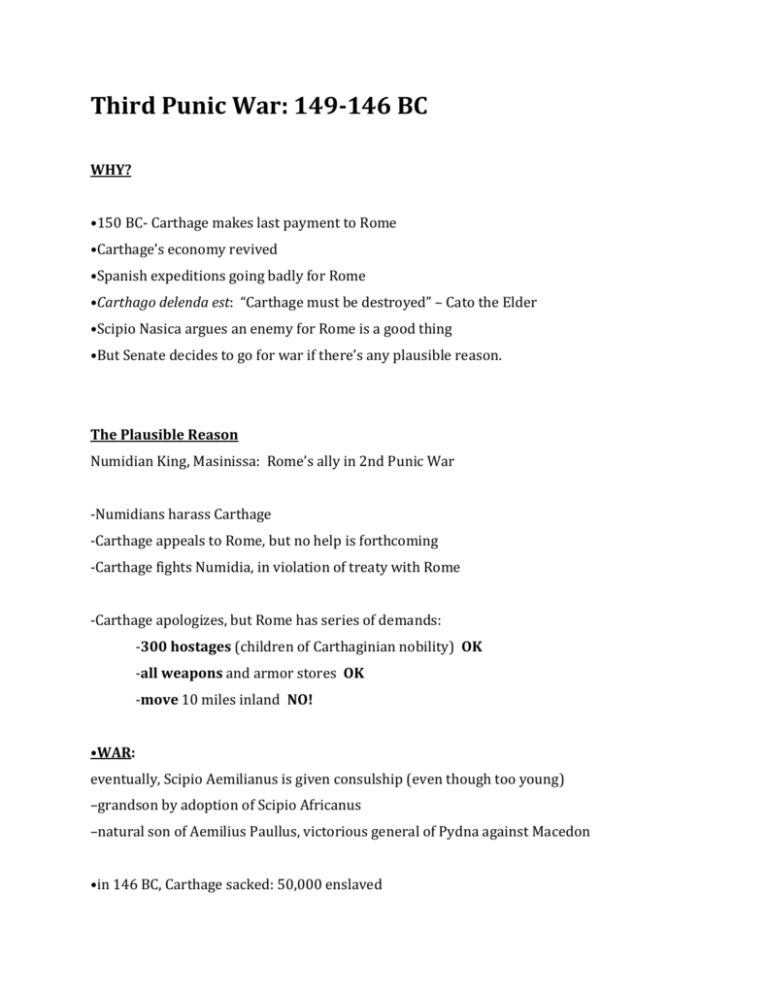
Third Punic War: 149-146 BC WHY? •150 BC- Carthage makes last payment to Rome •Carthage’s economy revived •Spanish expeditions going badly for Rome •Carthago delenda est: “Carthage must be destroyed” – Cato the Elder •Scipio Nasica argues an enemy for Rome is a good thing •But Senate decides to go for war if there’s any plausible reason. The Plausible Reason Numidian King, Masinissa: Rome’s ally in 2nd Punic War -Numidians harass Carthage -Carthage appeals to Rome, but no help is forthcoming -Carthage fights Numidia, in violation of treaty with Rome -Carthage apologizes, but Rome has series of demands: -300 hostages (children of Carthaginian nobility) OK -all weapons and armor stores OK -move 10 miles inland NO! •WAR: eventually, Scipio Aemilianus is given consulship (even though too young) –grandson by adoption of Scipio Africanus –natural son of Aemilius Paullus, victorious general of Pydna against Macedon •in 146 BC, Carthage sacked: 50,000 enslaved Vergil’s Aeneid: After The Trojan Aeneas abandons Carthaginian Queen Dido to sail to Italy and meet his destiny, heartbroken Dido resolves to commit suicide: “O Carthaginians, pursue my hatred against [Aeneas’] whole line and the race to come, and offer it as a tribute to my ashes. Let there be no love or treaties between our peoples. Rise, some unknown avenger, from my dust, who will pursue the Trojan colonists with fire and sword, now, or in time to come, whenever the strength is granted him. I pray that shore be opposed to shore, water to wave, weapon to weapon: let them fight, them and their descendants. …accept this soul, and loose me from my sorrows. I have lived, and I have completed the course that Fortune granted, and now my noble spirit will pass beneath the earth. I have built a bright city: I have seen its battlements… happy, ah, happy indeed if Trojan ships had never touched my shores!” She spoke, and buried her face in the couch. “I shall die un-avenged, but let me die,” she cried. “So, so I joy in travelling into the shadows. Let the cruel Trojan’s eyes drink in this fire, on the deep, and bear with him the evil omen of my death.” She had spoken, and in the midst of these words, her servants saw she had fallen on the sword-blade, the sword frothed with blood, and her hands were stained. A cry rose to the high ceiling: Rumor, unleashed, struck the city. The houses sounded with weeping and sighs and women’s cries, the sky echoed with a mighty lamentation, as if all Carthage or ancient Phoenicia were falling to the invading enemy, and raging flames were rolling over the roofs of men and gods.
